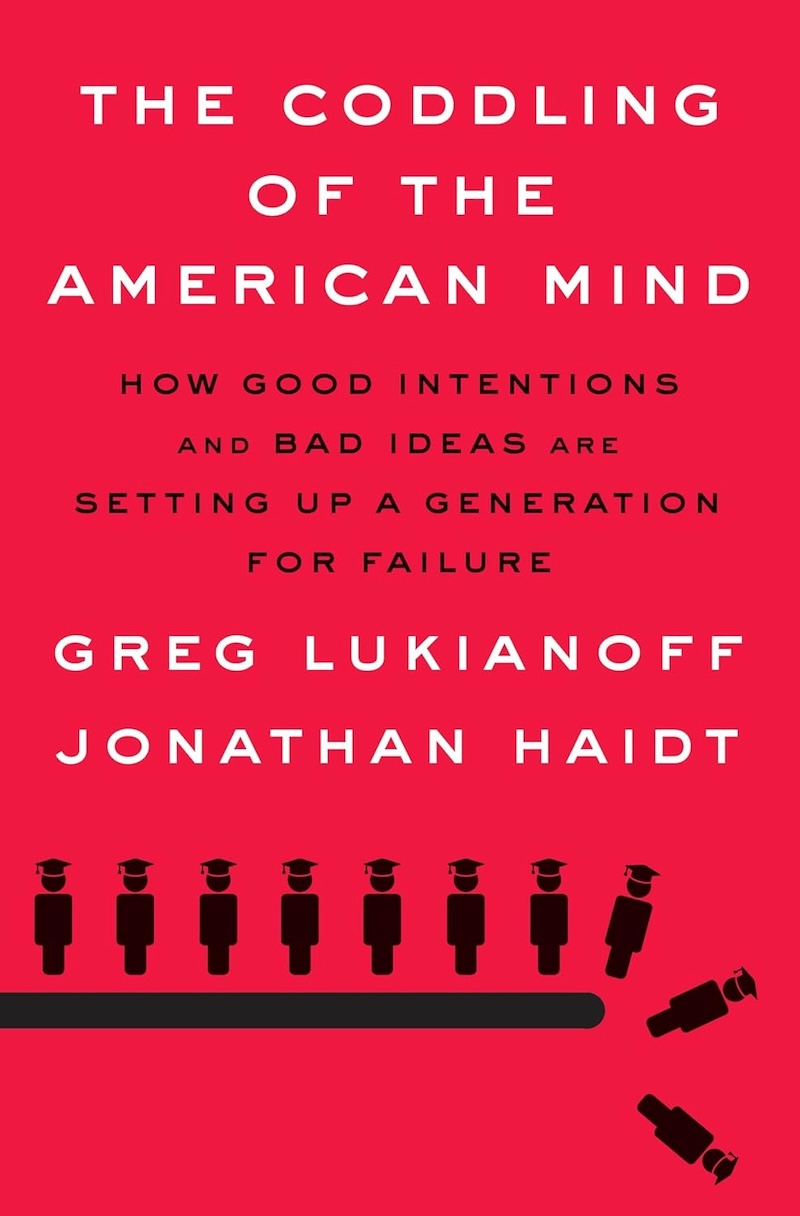The Coddling of the American Mind by Jonathan Haidt and Greg Lukianoff

Why read the book?
In Jonathan Haidt and Greg Lukianoff’s book, The Coddling of the American Mind, they delve into social psychology and argue that well-meaning efforts to protect young Americans from harm have actually created a culture of fragility, polarisation, and intellectual weakness.
They use psychological principles like cognitive distortions to explain how “safetyism,” which is an obsession with shielding people from discomfort, including speech and ideas, has led to campus unrest, cancel culture, and rising rates of anxiety and depression. From trigger warnings to deplatforming speakers, they show how these trends weaken resilience, critical thinking, and democratic discourse.
With data, real-world examples like the 2015 Yale Halloween costume controversy, and actionable solutions, this book offers a thought-provoking critique of modern cultural shifts, urging a return to anti-fragility and open dialogue.
Favourite quote
A culture that allows the concept of ‘safety’ to creep so far that it equates emotional discomfort with physical danger is a culture that encourages people to systematically protect one another from the very experiences embedded in daily life that they need in order to become strong and healthy.
What I Loved
“The Coddling of the American Mind” is a must-read for anyone interested in understanding the current state of our society. The authors, Jonathan Haidt and Greg Lukianoff, combine their expertise in moral psychology and free speech advocacy to diagnose a cultural crisis. They present a framework called “three Great Untruths” that help us understand modern dogmas.
The book is filled with real-world examples, from campus protests at Yale and Evergreen State to social media outrage cycles, that make the arguments come alive. The data on rising mental health issues among youth adds to the urgency of the situation. The proposed solutions, like cognitive behavioral therapy and encouraging free play, are practical and hopeful.
While some may find the critique of progressive campus culture one-sided, the authors’ balanced tone and focus on psychological harm make this a valuable read for anyone concerned about education, free speech, or societal polarisation.
Key Takeaway
To create a strong and open society, we should be brave enough to feel uncomfortable. This will help us think critically and talk openly about different ideas, not just stick to what we know and feel safe about.
Enjoyed this post?
Well, you could share the post with others, follow me with RSS Feeds, send me a comment via email, and/or leave a donation in the Tip Jar.
Tags
Category:
Genre:
People:
Year: